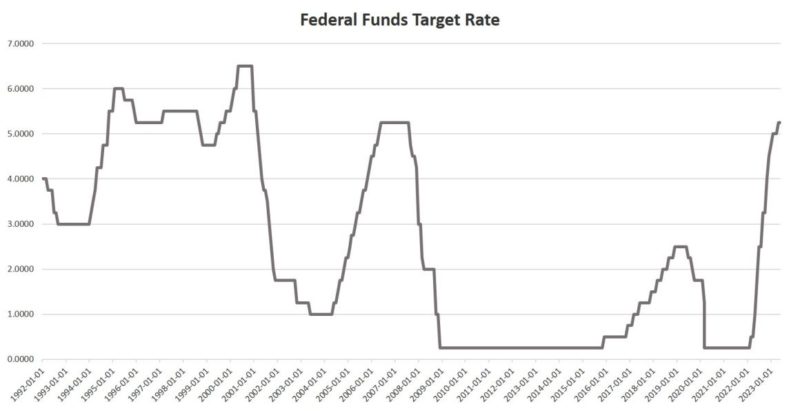Category Archive: 6b.) Mises.org
Deneen on Elitism
Last week, I discussed the way in which Patrick Deneen misreads John Stuart Mill in his book Regime Change. I’d like to continue the assault on Regime Change this week by looking at an argument he makes against libertarianism. Libertarians, Deneen alleges, are elitists. They think that ordinary people need to be ruled by an elite class of experts. They favor restrictions on democracy in order to entrench laws about property rights that benefit the...
Read More »
Read More »
Why Barbados Advanced Economically While Jamaica’s Growth Lagged
Even though Barbados and Jamaica had more similarities than differences when they became independent of Great Britain, Barbados developed its economy much more quickly.
Original Article: "Why Barbados Advanced Economically While Jamaica's Growth Lagged"
Read More »
Read More »
Unleashing the Power of Greed: How the Free Market Propels Progress
The free market system has faced its fair share of criticism, often being labeled as a breeding ground for greed and self-interest. However, let’s take a closer look and see how greed, when properly channeled and regulated within a free market framework, can actually bring about positive outcomes for society.
One fascinating thought experiment that showcases the positive role of greed in the free market is Adam Smith’s concept of the “invisible...
Read More »
Read More »
Why Governments Love Secrecy and Hate Whistleblowers
Ryan and Tho take a look at the legacy of Daniel Ellsberg's heroic leak of the Pentagon Papers and the evils of government secrecy. Modern leakers like Snowden, Manning, and Assange do important work educating voters and making the state more accountable.
New Radio Rothbard mugs are now available at the Mises Store. Get yours at Mises.org/RothMug
PROMO CODE: RothPod for 20% off
Read More »
Read More »
Fiat Food and Its Consequences with David Gornoski
On this episode of Good Money with Tho Bishop, David Gornoski of A Neighbor's Choice joins to discuss how government policies have impacted American diets. From the subsidization of certain crops to anti-science propaganda campaigns about diet, to the consolidation of the agricultural industry, the politicization of the economy still shapes not only their wallet but their plates.
Good Money listeners can order a special $5 book bundle that...
Read More »
Read More »
To Avarice No Sanction
What many people call government generosity Leonard Read called avarice.
Original Article: "To Avarice No Sanction"
Read More »
Read More »
Banks Create Money out of Thin Air. What Could Possibly Go Wrong?
You might rightfully wonder: How can a bank, like the neighborhood bank down the street, “create money out of thin air”?
To answer that question, we must enter the magical kingdom of “fractional-reserve banking,” where deposits are turned into loans, loans are turned into money, and so on. For every old dollar that goes in, nine new dollars come out, created with the stroke of a pen or the click of a mouse. As you may be aware, general deposits are...
Read More »
Read More »
Is The Federal Reserve Already Done Raising Rates?
Ryan and Robert Aro take a look at the Fed's unconvincing explanation of why it has chickened out on interest rate hikes. This only makes sense if the economy is much weaker than the Fed claims.
Be sure to follow the Fed Watch Podcast at Mises.org/FedPod.
Read More »
Read More »
China Calls Out the USA for Instigating the Infamous Color Revolutions
As geopolitical tensions rise, the Chinese political leadership tells the US government to desist pushing its "color revolutions."
Original Article: "China Calls Out the USA for Instigating the Infamous Color Revolutions"
Read More »
Read More »
The FTC Should Answer Its Call of Duty to Gamers
All too often, unscrupulous businesses weaponize the United States’ antitrust laws—which are only supposed to be utilized to protect consumers against higher prices and other consequences of monopoly power—for their own self-serving purposes. Professor Thomas DiLorenzo explained this problem more than a third of a century ago in a piece titled “The Rhetoric of Antitrust.” He wrote that “In theory antitrust regulation promotes competition in the...
Read More »
Read More »
School World Order
John Klyczek joins Michael on the first episode of REKT. John (jakE) is the author of School World Order: The Technocratic Globalization of Corporatized Education. Topics include the behaviorist, collectivist, and eugenicist roots of public (and state-sanctioned private) education, the globalist organizations behind the stakeholder capitalism regime, and the making of "global citizens" through indoctrination and technocratic surveillance...
Read More »
Read More »
Sound Money Is Required for Real Budget Discipline
The usual suspects are "relieved" that Congress gave President Biden what he wanted on the so-called budget deal. Without sound money, however, the borrowing and spending regime will collapse sooner or later.
Original Article: "Sound Money Is Required for Real Budget Discipline"
Read More »
Read More »
Assumptions Matter Both in Economics and in the Real World
To explain Japan’s economic problems, Paul Krugman employed a model that assumes people are identical and live forever. While admitting that the model is not realistic, Krugman nonetheless argued that his model could still offer solutions to the crisis.
In The Philosophical Origins of Austrian Economics, David Gordon wrote that Eugen von Böhm-Bawerk believed economic concepts must originate from reality and should be traced to their ultimate...
Read More »
Read More »
How Capitalism Redefined Masculine Virtue
In the pre-industrial world, aggression and physical domination were often labeled as "masculine" virtues because they were useful for survival. The rise of the cooperative market economy changed all that.
Original Article: "How Capitalism Redefined Masculine Virtue"
Read More »
Read More »
Powell Sends Mixed Messages as He Chickens Out on Rate Hikes
The Federal Reserve’s Federal Open Market Committee (FOMC) on Wednesday left the target policy interest rate (the federal funds rate) unchanged at 5.25 percent. This "pause" in the target rate suggests the FOMC believes it has raised the target rate high enough to rein in price inflation which has run well above the Fed's arbitrary two-percent inflation target since mid-2021.
Yet, at Wednesday's press conference announcing the FOMC's...
Read More »
Read More »
After the Debt Ceiling Deal: Look for Liquidity Problems in the Markets
Everything seems to be lining up perfectly for individual investors with Joe Biden and Kevin McCarthy making a debt ceiling deal. In fact, a sentiment poll reflects an ebullient investor class. According to an Investors Intelligence article titled "Assume the Positioning" (reprinted in Almost Daily Grant’s, June 1, 2023), “Just 23.3 percent of respondents are bearish on stocks, the lowest since January 2022, [when] the market scaled the...
Read More »
Read More »
We Need a Peace President
Most people agree that we are closer to nuclear war than at any time since the 1962 Cuban Missile Crisis. Some would even argue that we are closer now than we were in those fateful days, when Soviet missiles in Cuba almost triggered a nuclear war between the US and the USSR.
In those days we were told that we were in a life-or-death struggle with Communism and thus could not cede a square foot of territory or the dominoes would fall one-by-one...
Read More »
Read More »
Technology Is Meaningless without Entrepreneurship
While many believe that technology is key to a growing economy, technology is useless without entrepreneurship, which develops uses for technology.
Original Article: "Technology Is Meaningless without Entrepreneurship"
Read More »
Read More »
Demonizing Men with False Data on Sexual Abuse
There is a sea change in how society views false accusations of sexual abuse. And it’s about time.
The lawsuit John C. Depp, II v. Amber Laura Heard (2022) points to this transformation. Depp and Heard sued each other for defamation with “actual malice” over public accusations of domestic violence (DV) during their marriage; Heard also sued Depp’s attorney for making false statements. Unlike an earlier case brought by Depp in the United Kingdom,...
Read More »
Read More »
Leviathan Is on the Menu
I put for the general inclination of all mankind, a perpetual and restless desire of power after power, that ceaseth only in death.—Thomas Hobbes, The Leviathan
California continues to attack businesses and entrepreneurial freedom. Leviathan has awakened, this time with Assembly Bill 257, promoting a state-controlled trade union for all restaurant workers.
Current United States secretary of labor Marty Walsh has left and become head of the National...
Read More »
Read More »





























